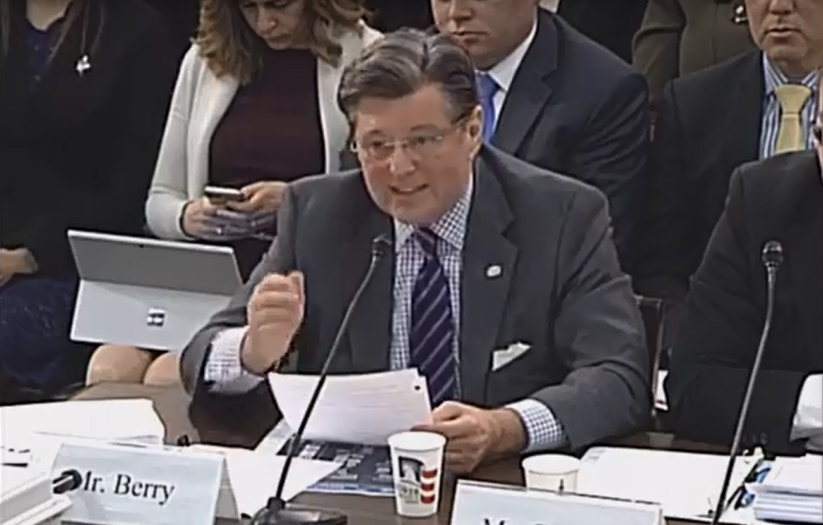
CCA CEO Steven Berry testified Tuesday before the House Energy and Commerce Committee
In testimony delivered before the House Energy and Commerce Committee on Tuesday, Competitive Carriers Association CEO Steven Berry urged legislators to keep broadband infrastructure at the top of their list of priorities.
Specifically, Berry’s address urged the committee to include mobile broadband infrastructure in any legislative infrastructure proposal, and also advocated for more “direct, long-term support” for mobile broadband infrastructure as well as help removing deployment barriers and bringing more spectrum to market. His comments come in the context of President Donald Trump’s stated goal of passing a $1 trillion infrastructure package.
When it comes to support for broadband infrastructure, Berry warned the committee tax credits alone likely won’t cut it.
“My initial impression would be straight tax credits – unless it’s an accelerated tax credit or immediate tax credit or a reduction in your out of pocket expenses – will create very little incentive to build out in rural America. Quite frankly, I think it’ll be the same in urban, sub-urban America,” Berry said in response to committee questions. “What you need is lower cost deployment opportunities for devices like this, like the small cells … I think there has to be some real money attached to support. In many of these rural areas, the economic model to build out and provide these services is very strained.”
Berry used the example of uncertainty around Mobility Fund Phase II funding and long wait times for Phase I reimbursements as instances that have chilled carrier buildout plans. After Phase I, he said, carriers put in the work to complete their build outs but had to wait for more than a year to be reimbursed. On the Phase II front, Berry said carriers “languished” for almost five years without certainty that more money was coming down the pipeline.
Certainty will also be needed, he said, when it comes to siting for expanded small cell deployments. The committee, he said, should move ahead with draft bills that would help smooth and speed the siting process, including measures that would streamline historical and environmental reviews; streamline the application process to locate or adjust facilities with federal agencies, clarify language in relevant statues, establish an inventory of federal assets to construct or collocate broadband facilities, and establish “dig once” policies.
On Berry’s long-term wish list were policies that would ensure “robust” access to backhaul services; update Section 224 of the Communications Act to support cost-effective wireless attachments on poles and in Rights-Of-Ways; streamline procedures for small cells and distributed antenna systems; and avoid “any new regulations that would stifle deployments.”
Of course, it wouldn’t be an industry conversation without a mention of spectrum, and indeed Berry broached the subject. In particular, he urged continued oversight of the repacking process following the incentive auction and additional efforts to allocate more spectrum resources for mobile broadband.
Also presenting at Tuesday’s hearing were U.S. Cellular CEO LeRoy Carlson Jr., Mosaik Solutions CEO Bryan Darr, CTC Technology and Energy President Joanne Hovis, Wireless Infrastructure Association Chairman Thomas Murray, CostQuest Associated President James Stegeman, and Saint Regis Mohawk Tribe Sub-Chief Michael Conners.
The discussion came as the committee considered draft legislation to facilitate the deployment of communications infrastructure via creation of an inventory of federal assets and streamlining of the federal approvals process. An additional draft bill related to the hearing would provide for the inclusion of broadband conduit installation as part of highway construction projects.
Further background on the meeting can be found here.
Filed Under: Industry regulations




